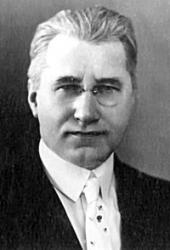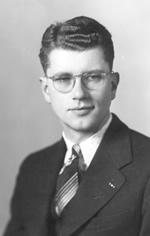Planning worship?
Check out our sister site, ZeteoSearch.org,
for 20+ additional resources related to your search.
- |
User Links
Search Results
Our Gracious God
Author: William Kuipers Meter: 11.10.10.11 Appears in 3 hymnals First Line: Our gracious God has laid his firm foundations Topics: Biblical Names & Places Babylon/Babel; Biblical Names & Places Egypt; Biblical Names & Places Jacob; Election; Epiphany & Ministry of Christ; Return of Christ; Biblical Names & Places Babylon/Babel; Biblical Names & Places Egypt; Biblical Names & Places Jacob; Church; Election; Epiphany & Ministry of Christ; Missions; New Creation; Pentecost; Return of Christ Scripture: Psalm 87 Used With Tune: GENEVAN 87
Our Gracious God
GENEVAN 87
Meter: 11.10.10.11 Appears in 5 hymnals Composer and/or Arranger: Jacobus J. Kloppers Tune Sources: Genevan Psalter, 1562 Tune Key: F Major Incipit: 16211 23432 14556 Used With Text: Our Gracious God
GENEVAN 87
Our Gracious God Has Laid His Firm Foundations
Author: Rev. William Kuipers Hymnal: Psalter Hymnal (Red) #175 (1934) Meter: 11.10.10.11 Topics: Adoption; The Church on Earth; Jerusalem; Missions; Nations; Regeneration Scripture: Psalm 87 Languages: English Tune Title: ZION'S GATES
Our Gracious God Has Laid His Firm Foundations
Our Gracious God Has Laid His Firm Foundations
Author: William Kuipers Hymnal: Psalter Hymnal (Blue) #165 (1976) Meter: 11.10.10.11 First Line: Our Gracious God has laid His frim foundations Topics: Adoption; Cornerstone Laying; Jerusalem Scripture: Psalm 87 Languages: English Tune Title: ZION'S GATES
Our Gracious God Has Laid His Firm Foundations
Our Gracious God
Author: William Kuipers Hymnal: Psalter Hymnal (Gray) #87 (1987) Meter: 11.10.10.11 First Line: Our gracious God has laid his firm foundations Topics: Biblical Names & Places Babylon/Babel; Biblical Names & Places Egypt; Biblical Names & Places Jacob; Election; Epiphany & Ministry of Christ; Return of Christ; Biblical Names & Places Babylon/Babel; Biblical Names & Places Egypt; Biblical Names & Places Jacob; Church; Election; Epiphany & Ministry of Christ; Missions; New Creation; Pentecost; Return of Christ Scripture: Psalm 87 Languages: English Tune Title: GENEVAN 87
Our Gracious God
William Kuipers

1883 - 1933 Versifier of "Our Gracious God" in Psalter Hymnal (Gray) Born: 1883, Rochester, New York.
Died: 1933, Passaic, New Jersey.
Buried: Restlawn Cemetery, Grand Rapids, Michigan.
Kuipers emigrated from Friesland to America, in the late 1880s, graduated from Calvin College, Grand Rapids, Michigan, and was ordained in the Christian Reformed Church. He served at the Second Christian Reformed Church of Fremont, Michigan (1914-19); Christian Reformed churches in Oakland, Michigan (1919-23); Dennis Avenue, Grand Rapids, Michigan (1923-27); and Summer Street, Passaic, New Jersey (1927-33). He wrote a number of poems, hymns, and psalm versifications.
© The Cyber Hymnal™ (hymntime.com/tch)
William Kuipers
Henry A. Bruinsma

1916 - 1991 Harmonizer of "ZION'S GATES" in Psalter Hymnal (Blue) It was in Bruinsma's musical compositions that his brilliance was most displayed. “Henry’s personality was … embodied in his music: colorful, radiating charisma, magnetic in a nonverbal way,” niece Jane DeGroot said.
Bruinsma displayed musical potential even before he was considered old enough to take music lessons, said his wife, Grace Hekman Bruinsma. The preschooler would eavesdrop on his older brother’s piano lessons. After the teacher left, Bruinsma would climb onto the piano bench to practice his brother’s lesson assignment. Later on, he chose to attend Ottawa Hills High School in Grand Rapids, Mich., for its music program.
Following high school graduation in 1933, Bruinsma attended the University of Michigan for a degree in music. He stayed on to complete a Ph.D. in musicology, becoming the first musicologist to graduate from the University of Michigan. It was during his graduate work that Bruinsma wrote Scherzo on a Dutch Nursery Song. “He never lost his love for Dutch history or Dutch Reformed music,” Grace Bruinsma said.
It was also during his time at U of M that Bruinsma began taking Grace to music concerts, and in 1939 they were married.
Bruinsma began his time as a professor of music at Calvin College (1946-55). In addition to his teaching duties at the college, Bruinsma taught the first music and theology course at Calvin Seminary. He also chaired the first Conference on Liturgy of Music.
However, not long after his time at Calvin, Bruinsma decided he was being called to move from teaching to education administration. Of note is his time at Ohio State University (1959-64), where he served as the director of the School of Music. He also held the position of executive committee member of the College of Education.
Next, Bruinsma moved to what is now Arizona State University (1964-79), another notable mark in his education administration career. During that time, he served first as chair of the School of Music, then as founding dean of the College of Fine Arts. He is also known to have started the first religious studies program at Arizona State as part of the university’s interdisciplinary studies program.
Due to the amount of time he spent in education administration, much of Bruinsma’s musical compositions were never published. After his death, Grace Bruinsma contacted Gerry Bouma of Morningside College in Sioux City, Iowa. Bouma and Henry Bruinsma had met in 1969 at a Grand Rapids Christian High School concert in Chicago. “For whatever reason, Henry and Grace treated us like we were their kids,” Bouma said. Grace asked Bouma to catalog and publish the 10,000 pages of Henry’s material. Taking a semester sabbatical, Bouma began his work.
Bouma’s catalog of Bruinsma’s work can be found in the Heritage Hall Archives at the Hekman Library, Calvin College. The Archives also hosts additional works from Bruinsma’s time at Calvin.
--Excerpted from Calvin Spark, Spring 2006 issue
Henry A. Bruinsma


 My Starred Hymns
My Starred Hymns


